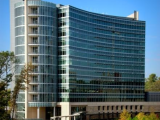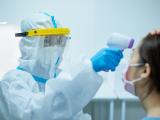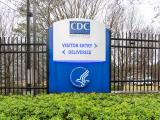Jul 24, 2008 (CIDRAP News) The president of the Association of Public Health Laboratories (APHL) complained to Congress last week that the federal program that monitors the air for dangerous pathogens in major cities is a heavy burden on state and local laboratories.
Dr. Frances Pouch Downes said the federal BioWatch program, run by the Department of Homeland Security (DHS), refuses to pay state public health labs for space dedicated to the program or for administration and training services the states provide for it, among other problems.
State and local labs provide testing services for the BioWatch program, which samples the air in 30 major cities for pathogens such as anthrax, smallpox virus, plague, and other agents that bioterrorists might try to use.
"The BioWatch program has been variously described by my fellow state and local laboratory directors as a parasite to the public health laboratory and squatters in valuable public health laboratory space. I am hard-pressed to disagree," said Downes, who, besides leading the APHL, is director of the Bureau of Laboratories in the Michigan Department of Community Health.
Downes testified at a Jul 16 hearing of the House Homeland Security Subcommittee on Emerging Threats, Cybersecurity, and Science and Technology.
The BioWatch program was launched in 2003, in the wake of the anthrax letter attacks of the fall of 2001. Michigan's lab became a host facility for the program in March 2003, Downes said.
Federal demands 'limitless'
In prepared testimony, she said she accepted the program with the understanding that it would not divert her lab from other testing priorities and that she would control the program's quality and safety. "Unfortunately, we have never hit this mark and are moving further away from it," she said.
BioWatch's space demands on Michigan's lab have grown "at an unrestricted pace" and "are limitless," Downes complained. Because of limited funds and legal restrictions, "DHS has said they will not reimburse for the use of laboratory and storage spacean issue they say is nonnegotiable," she added.
In addition, state and local public health labs absorb costs associated with administration, training, and safety for BioWatch contractor personnel, Downes said. Labs have to provide such things as utilities, disposal of infectious waste, support services, computers, telephones, vaccinations, and scientific direction on questionable results.
"To be blunt, this amounts to nothing less than the federal government demanding a match from state and local governments to defray the expenses of a federal program with no limits, no control on the direction of the program, but almost total responsibility for response," she stated.
Downes said DHS and its BioWatch contractor have no contractual relationships or written agreements with state and local labs. Consequently, the labs cannot require the contractor to follow site-specific quality assurance practices and standard operating procedures, including those related to safety.
DHS has drafted a memorandum of agreement regarding its relationship with state and local labs, but its terms make it unlikely that state and local governments will accept it anytime soon, she said.
On the science and technology side, Downes complained that DHS has not given lab directors the performance data, including test sensitivity, specificity, and limits of detection, that they need to best interpret test results.
She said some scientists are concerned that certain pathogens may occur naturally in certain areas, such as the tularemia agent in the Houston area, triggering positive tests results that are not due to terrorism. But other than some descriptive data from Houston and Virginia, labs have not received "data depicting the background levels and types of organisms in the environment."
Downes made several recommendations for correcting the problems she described. For example, she suggested that DHS could use a cooperative agreement mechanism to pay state and local labs to manage the BioWatch program. BioWatch contractor employees could then be integrated into the lab staff, which would help labs fulfill their required missions.
DHS response
In response to Downes's testimony, DHS officials at the hearing expressed some surprise and pledged to respond to the concerns of state and local lab officials. (A video recording of the hearing is available on the subcommittee Web site.)
"I'm disappointed that I wasn't aware of the level of concern in the lab community since I've taken over the program. I'm committed to resolving that," said Robert Hooks, deputy assistant secretary for weapons of mass destruction and biodefense in the DHS Office of Health Affairs.
Hooks said he had offered to meet with Downes and others to improve DHS's partnership with the states. "We want to provide an early detection capability for the nation that benefits the nation," he added. "This isn't an issue of the BioWatch Program Office against the state and local community."
Since BioWatch was launched, DHS has paid for the personnel, reagents, and test equipment involved, Hooks said, adding, "We understand there are indirect costs such as space."
He also said the number of sample collectors used in Michigan has increased since 2003, resulting in more samples being analyzed.
BioWatch Director Dr. Jeffrey Stiefel said he knew state lab officials had concerns about BioWatch but wasn't aware they were as great as described by Downes. "We've just changed contractors, and there's always turbulence when that occurs," he commented.



















